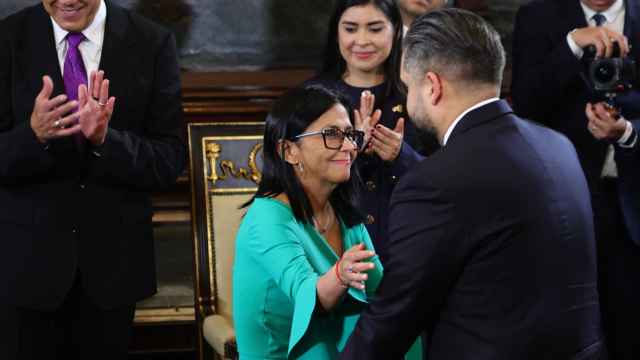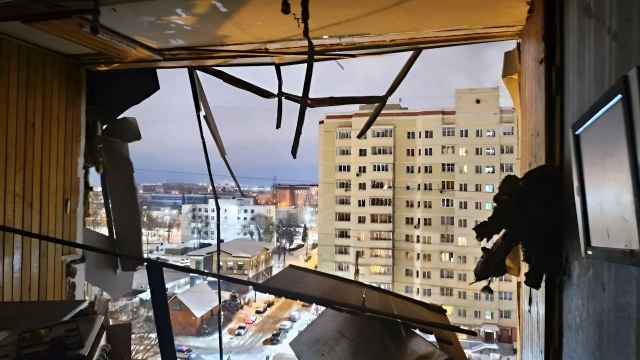Turning Russia into an innovation country will cost the budget nearly half a trillion dollars over ten years, according to the Economic Development Ministry, but the government's exotic programs are not worth it, experts say.
The government will review the draft of the strategy for the country's innovative development through 2020 on Sept. 6, Deputy Economic Development Minister Oleg Fomichev said.
The strategy calls for the federal government to spend not less than 11 percent of its total budget outlay on innovation over the next ten years.
In truth, the Finance Ministry did not agree to the strategy because of the amount of investment required, and proposed tax stimuli as measures, Fomichev said. The strategy is based on large expenditures of money the government does not have, a Finance Ministry official said.
To ensure an innovative breakthrough, 15.7 trillion rubles from the state coffers need to be spent over the next 10 years, according to Economic Development Ministry's calculation.
In that case, the ministry calculates, the Russian economy could reach the level of the world high-tech and intellectual service leaders in several sectors, leading to an increase in the high-tech sector's contribution to gross domestic product from 13 percent to 18 percent.
Now the main problem is the absence of interest in innovation by Russian companies, officials say. The state needs to seriously invest, specifically in innovative businesses — 7.6 trillion rubles for ten years. That is the price tag for fundamental scientific research, support of startups, and seed funding.
Another 3.3 trillion rubles is necessary for creating innovative infrastructure and Russia's participation in the global system of innovation. The Economic Development Ministry plans a database with basic information about all innovation projects.
The state should spend funds to convince a minimum of 20 research and development centers of leading global companies to set up at Skolkovo.
The strategy also calls for increasing the budget to finance credits, guarantees and even compensate business expenses associated with bringing products to new markets. The tax burden for companies involved in innovation should be reconsidered.
The ministry's expectations are rosy. The return on investment will take place, new materials will be developed with as yet unachieved possibilities, and there will be an overall cascade effect of modern advanced technologies into the low-tech manufacturing sector.
"It seems that recently the authorities are competing to see who can ask for more funding. It started with 10 trillion rubles for defense, then 4 trillion for the Caucasus, now 16 trillion on innovation," said Igor Nikolayev, a partner at FBK.
The authorities would not require such expenditures if they had done what they should have a long time ago — create a competitive environment for business, he said.
The state should set up basic conditions and not be writing exotic strategies, said Alexander Galushka, head of the business lobby Delovaya Rossia. "Without competition and a favorable investment climate, the expenditure of such funds will be throwing money to the wind," he said.
A Message from The Moscow Times:
Dear readers,
We are facing unprecedented challenges. Russia's Prosecutor General's Office has designated The Moscow Times as an "undesirable" organization, criminalizing our work and putting our staff at risk of prosecution. This follows our earlier unjust labeling as a "foreign agent."
These actions are direct attempts to silence independent journalism in Russia. The authorities claim our work "discredits the decisions of the Russian leadership." We see things differently: we strive to provide accurate, unbiased reporting on Russia.
We, the journalists of The Moscow Times, refuse to be silenced. But to continue our work, we need your help.
Your support, no matter how small, makes a world of difference. If you can, please support us monthly starting from just $2. It's quick to set up, and every contribution makes a significant impact.
By supporting The Moscow Times, you're defending open, independent journalism in the face of repression. Thank you for standing with us.
Remind me later.





